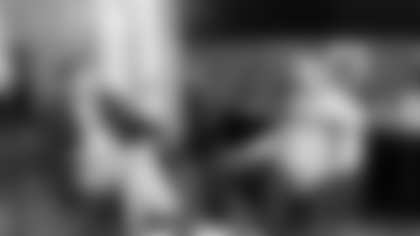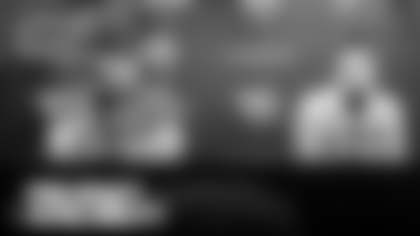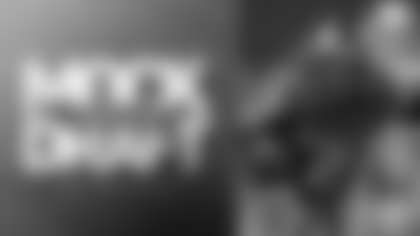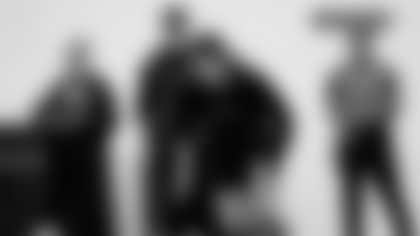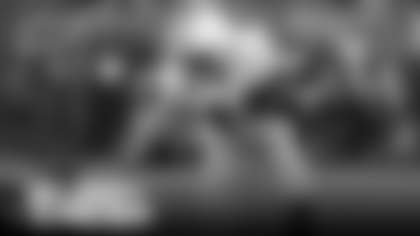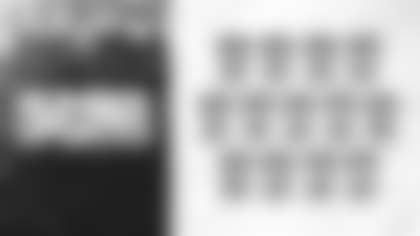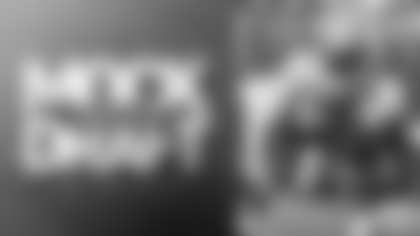Join Jaguars Inside Report Senior Editor Vic Ketchman as he tackles the fans' tough questions.
Preston from London, England:
You say that all great teams have balance, but I grew up in south Florida and I think I remember hearing that in either the 1972 or 1973 Super Bowl, Bob Griese threw only seven passes the entire game. Were they not a great team?
Vic: In Super Bowl VIII, Bob Griese completed six of just seven passes in the Dolphins' 24-7 win over Minnesota. Larry Csonka rushed for a Super Bowl-record 145 yards. In this game, the Dolphins' running game was so dominant they didn't need to throw the ball. But the Dolphins teams that won Super Bowls VII and VIII, even though they were distinctly tilted toward the running game, had the "Big Three" in Griese, Csonka and Paul Warfield, who didn't get to the Hall of Fame by not catching passes. Yes, those were great teams. The Dolphins could run it or throw it with equal ability and their opponents had to prepare to stop the run and the pass. In other words, the Dolphins presented a balanced threat, and sometimes that's all you have to do.
John from Port Orange, FL:
Your column is one of my daily must-reads. Is it my imagination or are the officials (or perhaps certain officials) calling more penalties than in the past? It seems the NFL has moved toward younger, more proactive officials with the result being that flags are constantly flying. Do you sense that this is a problem? Thanks again for your provocative and informative column.
Vic: I don't have league-wide statistics for the first five weeks, but penalty totals for the Jaguars and their opponents through week-five games is up from last season. The total number of penalties called against the Jaguars in 2002 was 89; 96 for their opponents. Through five games this season, the Jaguars have been flagged 40 times; 33 times for their opponents. What that means is about three more penalties per game are being called in this year's Jaguars games than last year's. The league keeps a very close watch on these kinds of things. If they decide too many penalties are being called, they'll make the necessary adjustment.
John from Jacksonville:
In 1999, when Ditka traded all of his draft picks to get Ricky Williams, what team got those picks? Did that team drastically improve?
Vic: Washington got the picks, and although you could say they didn't improve the Redskins' overall fortunes, it would be hard to argue with the talent that deal with New Orleans provided. Directly or indirectly (they used those picks to also work a deal with Chicago), the Redskins used the trade with the Saints to draft players such as Champ Bailey, Jon Jansen and LaVar Arrington.
Lee from Ponte Vedra Beach, FL:
I admit it. I'm an addict. I visit jaguars.com on a daily basis just to read your articles and "Ask Vic." Thanks for the daily fix. With that said, would you please explain the QB rating system?
Vic: Four figures are used to determine a quarterback's passer rating: completion percentage (completions per attempt), touchdown percentage (touchdowns per attempt), interception percentage (interceptions per attempt) and average yards per pass attempt (yards per attempt). Those numbers have assigned values and the total of those values gives a number which translates into an overall passer rating.
Ryan from Jacksonville:
I have a question for you about receiving a punt. In some cases, the receiving team allows the ball to roll to a stop. When this happens, several members of the kicking team gather and form a circle around the ball until one of them decides to quickly pick up the ball to down it. I thought the ball is instantly downed as soon as one member of the kicking team touches it, so why form the crowd?
Vic: The ball hasn't officially been downed by the punting team until one of its members possesses or controls the ball. Here's a rule you may not know: If a punt-returner picks up the ball and runs with it after a member of the punting team has touched the ball but not controlled it, the punt-returner does so at no risk of fumble. In other words, you can pick up the ball, run with it for 99 yards and then fumble it away to the punting team, and the ball belongs to you at the point where the ball was first touched by the punting team.
Sean from Jacksonville Beach, FL:
See? Didn't I just write and question the "chopping wood" theme and offer alternatives such as "building sandcastles" or some other safe activity in the locker room? I hope the wood stump doesn't make its way toward your office!
Vic: No chance. Want some firewood?
Alan from London, England:
Before a play, the coach can talk to the QB, but what about at the line of scrimmage or while a play is going on? Enlighten me.
Vic: I don't think I can enlighten you but I can answer your question. The quarterback may receive communication from his sideline from the end of one play until 15 seconds remain on the play clock prior to the start of the next play, or at the snap of the ball. At those points, communication is blocked.
Patrick from Lima, OH:
Well I figured it was a matter of time before someone chopped too hard. Any ideas for a new slogan?
Vic: How about, "Just keep winning games?"




